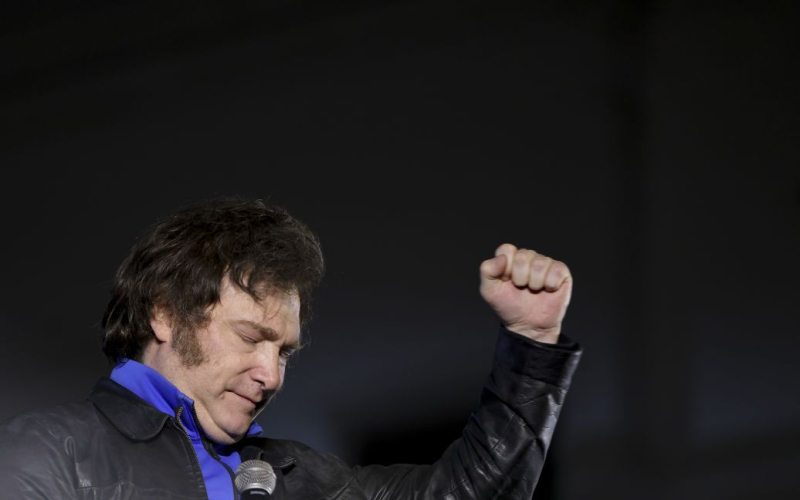
The President and his allies are preparing new security rules ahead of protests against currency devaluation.
Just days after taking office, Argentine President Javier Miley's government announced sweeping economic measures that have angered some social and labor groups and warned it would crack down deal with any protests blocking the streets.
Associated Press writes about this.
Details
On Wednesday, December 20, the right-wing populist will face the first test of his administration's handling of the demonstrations after the groups called on people to protest against the economic shock measures that Miley said were needed to overcome Argentina's acute crisis.
Millay, who came to power on promises of radical reforms, announced a 50 percent devaluation of the Argentine peso, cuts in subsidies for energy and transport, and the closure of some government ministries. Against this background, the country is witnessing a rapid increase in inflation and poverty.
Read the leading news of the day:
Miley Security Minister Patricia Bullrich has unveiled a new public order “protocol” that allows federal forces to disperse people blocking streets without a court order and authorizes police to identify – through video or digital means – people protesting and blocking public highways. She can bill them for the costs of mobilizing security forces.
What is known about the new protocol
The new protocol aims to prevent blockages, especially in Buenos Aires, where regular protests often close streets for several hours in so-called “pickets”.
Some groups say the protocol goes too far and criminalizes the right to protest.
On Tuesday, December 19, Argentine trade union, social and human rights groups signed a petition asking the United Nations and the Inter-American Commission on Human Rights to oppose the new security protocol. In the petition, they state that it is “incompatible with the rights to freedom of assembly and association, freedom of expression and social protest” recognized in the country's constitution.
Protests in exchange for support?
The Argentine government went further this week and announced on Monday, December 18th, that people blocking streets could be removed from government aid lists if they are on them.
“To beneficiaries of social plans: know that no one can force you to march under the threat of losing your plan,” said Sandra Pettovello, head of the newly created Ministry of Human Capital, which united former ministries of labor, education and social development.
“It is a right to protest, but so is the right of people to move freely within Argentina to get to their place of work,” she said.
In Argentina, some people receive social support directly from the government, while others receive social support through public organizations that have direct ties to the federal government. Miley's administration says many of these groups are using this as a way to force people to protest in exchange for support.
Polo Obrero, who represents the interests of the unemployed, is one of the social groups calling for protests on December 20th. Its leader, Eduardo Belliboni, said that Milei's government plans to go “against the right to protest.”
In Buenos Aires, people were called to protest by marching from Congress to the historic Plaza de Mayo. The march will coincide with the 22nd anniversary of protests against the government's handling of the economic crisis that claimed dozens of lives and led to the resignation of then-President Fernando de la Rúa.
A recent survey conducted by the Observatory of Applied Social Psychology of the University of Buenos Aires showed that 65% of respondents agreed with the prohibition of blockades.
Recall, Miley, a 53-year-old economist, became president with the support of Argentines frustrated by the economic crisis.
Argentina's annual inflation rate is 161%, and four out of every 10 people are poor. The South American country also has a $45 billion debt to the International Monetary Fund.
Read also:
Related topics:
More news

